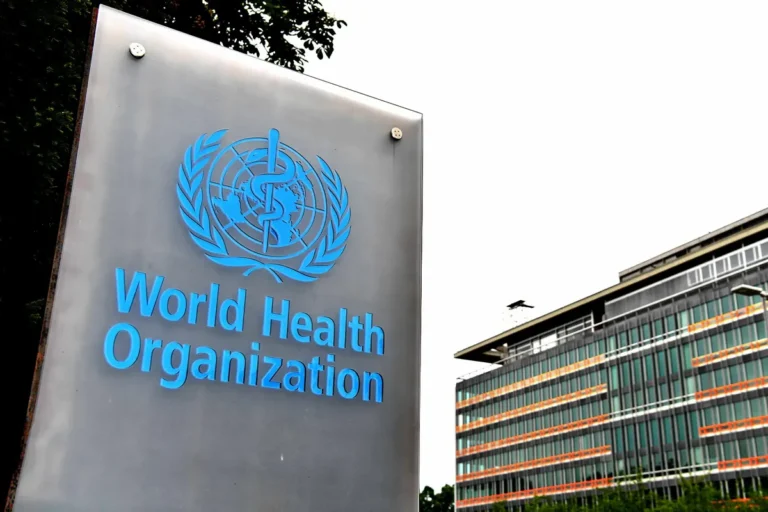Uniting for Action: WHO leads fight against Buruli Ulcer in Nigeria
A few months ago, life took a sudden twist for 57-year-old Angela Dukpe (name changed), residing in a village in Gwer West Local Government Area of Benue state in northern Nigeria, when a painless nodule on her left leg developed into a big smelly sore, disfiguring her left leg.
“I initially dismissed the lump, which became a big wound with pus coming out of it. The wound affected my self-esteem and social life, making it difficult to care for my family,”- she explained.
Angela received help after a traditional healer she sought healing from notified a health worker (a Disease Surveillance and Notification Officer (DSNO)), Mr Ikyoto Sylvanus, about her case.
“The wound on Angela’s leg had similar characteristics to Buruli Ulcer”, explained Mr Ikyoto, who collected a swab sample from the wound for a laboratory test.
Angela was administered antibiotics treatment for her ailment.
Understanding Buruli Ulcer
The World Health Organization (WHO) has designated Buruli Ulcer as one of the 17 Neglected Tropical Diseases affecting more than 120 million people in 72 countries, including Nigeria. The infectious disease predominantly affects the skin, deeper soft tissues, and, in some cases, the bones, and if left untreated, can lead to severe disabilities and permanent disfigurement.
In 2024, Nigeria reported 698 suspected cases of Buruli ulcers. The disease often begins as a painless swelling or nodule, mainly on the leg, arms, or face, and, if untreated, can progress to large ulcers.
Buruli Ulcer thrives in rural, swampy areas and disproportionately affects children under 15. The disease may progress with no pain or fever.
Early detection and treatment are critical in mitigating the devastating effects of the disease, and these consist of a combination of antibiotics and complementary therapies in the early stages. Still, many affected individuals are unaware of these options.
WHO’s Lifeline of Support
In Nigeria, the Federal Ministry of Health, in collaboration with WHO and other international and local partners, has been at the forefront of combating Buruli ulcer and other NTDs by guiding its diagnosis and treatment. Through technical, financial, and logistical support, WHO is helping to strengthen disease surveillance, improve access to diagnosis and treatment, raise awareness about all NTDs and strengthen health systems.
For instance, in Benue state, where Angela resides, the WHO provides technical support to the state to facilitate surveillance and search for active cases while facilitating specimen collection for laboratory testing.
“WHO has supported the sensitisation campaigns to sensitise the communities on improved healthcare-seeking behaviour for early treatment of cases of Buruli Ulcer before the onset of complications. The campaign yielded positive results as the traditional healer who notified of Angela’s case became aware of the symptoms and was knowledgeable to inform the health worker through sensitisation activities,” explained Mr Ikyoto.
Mr Ikyoto, however, believes more global and local effort is required to eradicate the disease.
“We need the support of funding and drugs to follow up on case management-related cases. Currently, most of the identified cases are not receiving any treatment from the health system,” added Mr Ikyoto.
World NNTD day
With Nigeria recently joining the World to commemorate 2025 World NTDs Day, the Minister of State for Health and Social Welfare, Dr Iziaq Salako, said that more than 200 million Nigerians are at risk of contracting at least one Neglected Tropical Disease (NTD), with 165 million in need of preventive chemotherapy.
Dr Salako noted that the 10-year NTDs road map 2021−2030 rolled out by WHO, set ambitious targets and provided a blueprint for global elimination.
“We shall focus attention on millions of people with little or no access to prevention, treatment, and care services to counter the social determinants of health,” he added.
According to the report distributed by the APO Group on behalf of World Health Organization (WHO) – Nigeria, in a call for action, the WHO Country Representative Dr Walter Kazadi Mulombo called on everybody, including leaders and communities, to unite, act, and eliminate neglected tropical diseases (NTDs) by making bold, sustainable investments to free the estimated 1.5 billion people in the world’s most vulnerable communities from a vicious cycle of disease and poverty.
Dr Mulombo said, “Buruli Ulcer is one of the NTDs that causes more morbidity and suffering than mortality. It reduces the daily adjusted life years for affected persons and impacts national productivity. Communities, governments, and Civil Society Organisations (CSO) should pay more attention to this silent and neglected disease.”
GIK/APA


